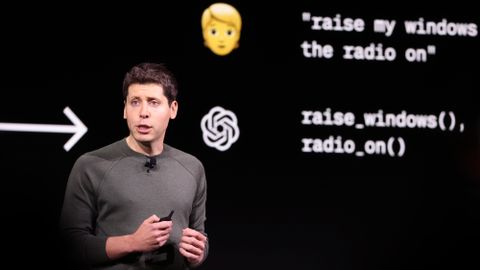OpenAI Raises Alarm Over Emotional Attachment To AI - The...
OpenAI has expressed concerns about the emotional risks associated with the utilization of its advanced voice feature for the ChatGPT model, known as GPT-4o. The apprehension extends beyond technological malfunctions to the potential emotional attachment that users may develop towards the AI, which could have significant implications on human interactions.

System Card Warning
The warning stemmed from OpenAI's internal testing and research, documented in what they refer to as the System Card. Released on August 9, this document provides insightful yet troubling information on how users might form relationships with the AI, particularly through the recently introduced voice functionalities.
Anthropomorphism Concern
Initial tests conducted by OpenAI revealed instances where users displayed emotional sentiments typically associated with human relationships. Users were heard making comments like, “This is our last day together,” indicating a development of social bonds with the AI. With the GPT-4o's ability to mimic human speech patterns and provide emotional responses, the line between human interaction and AI engagement became increasingly blurred.

OpenAI highlighted the concept of anthropomorphism, where users attribute human-like traits to non-human entities. The organization emphasized that this phenomenon is amplified by GPT-4o's voice capabilities, which encourage interactions that resemble human-to-human communication.
Social Norms Impact
One major concern is the potential impact of these emotional attachments on social norms. For instance, the design of the AI allows users to interrupt its speech more fluidly than traditional human interactions would permit, potentially distorting social expectations regarding communication and complicating real-life interactions.

Extended engagements with the AI model might influence social norms and expectations. OpenAI noted that while the AI models are accommodating, allowing users to interrupt and take control at any time, such behavior might be deemed impolite in human-to-human communication.
Over-Reliance Risk
There is also a risk of over-reliance on AI technology, particularly for emotional support, which could lead to challenges in healthy interpersonal relationships. While the AI's voice feature may offer solace to isolated individuals, it could also hinder genuine human connections, potentially exacerbating issues like social isolation.
Unintended Consequences
OpenAI has had to address unintended consequences of the GPT-4o's interactions, especially when it mirrors users' emotional tones or speech patterns, occasionally mimicking the user's voice. These instances raised concerns about the AI producing inappropriate responses, including those with sexual or violent undertones.
Risks and Ethical Considerations
OpenAI has implemented thorough testing protocols to mitigate risks associated with the GPT-4o, including cybersecurity and unauthorized voice generation. Despite efforts to address potential risks, questions surrounding ethical technology use persist, particularly concerning misinformation dissemination and the balance between innovation and human connection.
Red-teaming, a practice involving ethical hacking to challenge AI limits, plays a crucial role in identifying and addressing risks associated with user interaction. The ongoing discussion on emotional dependency on voice AI like GPT-4o underscores the need for continued examination of the evolving relationship between humanity and AI technologies.
Future Implications
As AI technologies evolve rapidly, the dialogue on emotional attachment to AI is expected to endure. OpenAI remains committed to exploring the implications of affection towards AI over time and assessing its impact on user behavior. Striking a balance between innovation and responsible human-AI interaction will be paramount in navigating the complexities of this digital transformation.
Conclusion
The evolving landscape of AI-human relationships poses intriguing questions for the future, particularly regarding societal adaptation to technological advancements. The interaction between human emotions and AI capabilities necessitates careful consideration and scrutiny as we navigate this transformative era.




















